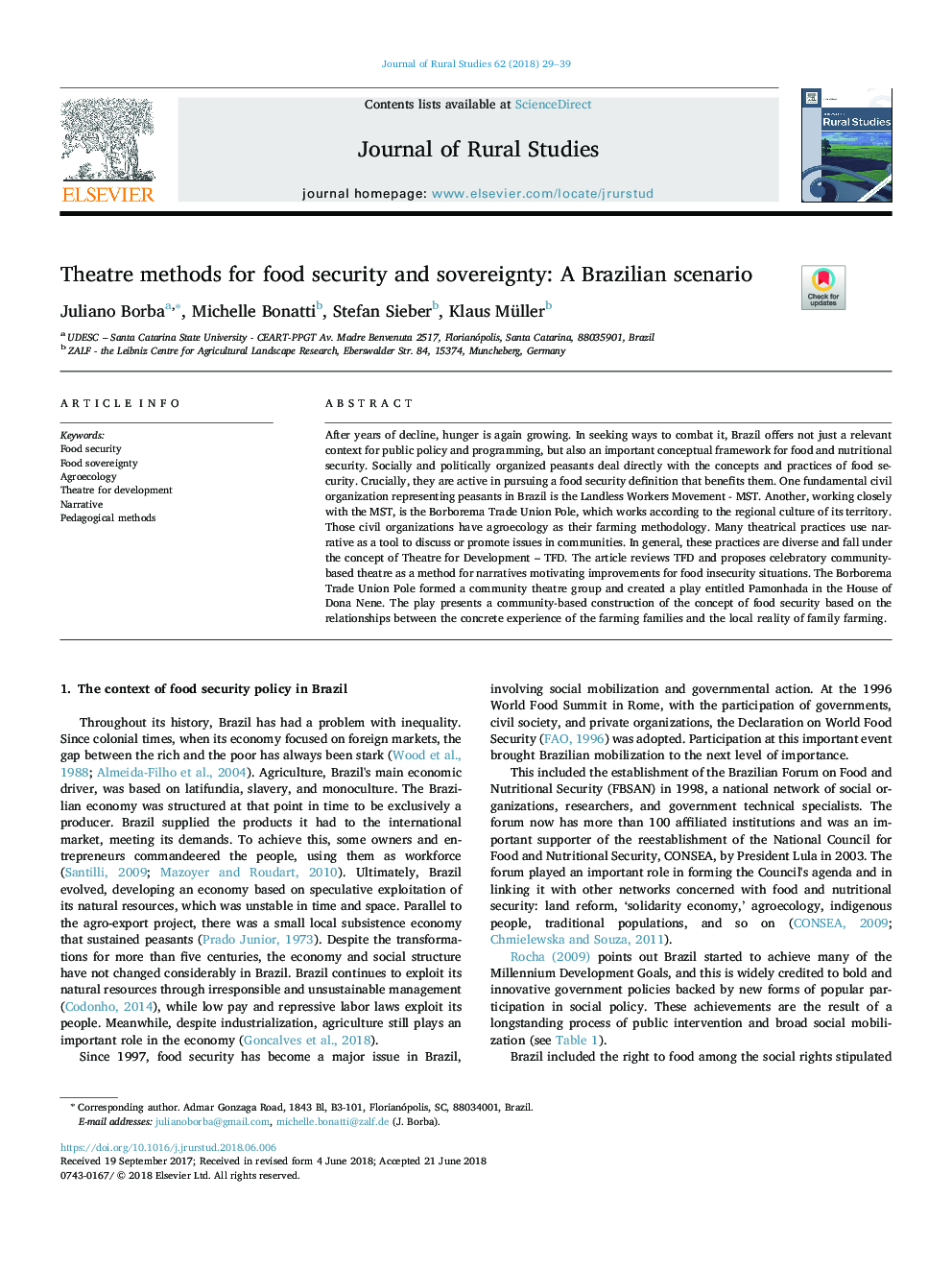| Article ID | Journal | Published Year | Pages | File Type |
|---|---|---|---|---|
| 6545218 | Journal of Rural Studies | 2018 | 11 Pages |
Abstract
After years of decline, hunger is again growing. In seeking ways to combat it, Brazil offers not just a relevant context for public policy and programming, but also an important conceptual framework for food and nutritional security. Socially and politically organized peasants deal directly with the concepts and practices of food security. Crucially, they are active in pursuing a food security definition that benefits them. One fundamental civil organization representing peasants in Brazil is the Landless Workers Movement - MST. Another, working closely with the MST, is the Borborema Trade Union Pole, which works according to the regional culture of its territory. Those civil organizations have agroecology as their farming methodology. Many theatrical practices use narrative as a tool to discuss or promote issues in communities. In general, these practices are diverse and fall under the concept of Theatre for Development - TFD. The article reviews TFD and proposes celebratory community-based theatre as a method for narratives motivating improvements for food insecurity situations. The Borborema Trade Union Pole formed a community theatre group and created a play entitled Pamonhada in the House of Dona Nene. The play presents a community-based construction of the concept of food security based on the relationships between the concrete experience of the farming families and the local reality of family farming.
Related Topics
Life Sciences
Agricultural and Biological Sciences
Forestry
Authors
Juliano Borba, Michelle Bonatti, Stefan Sieber, Klaus Müller,
